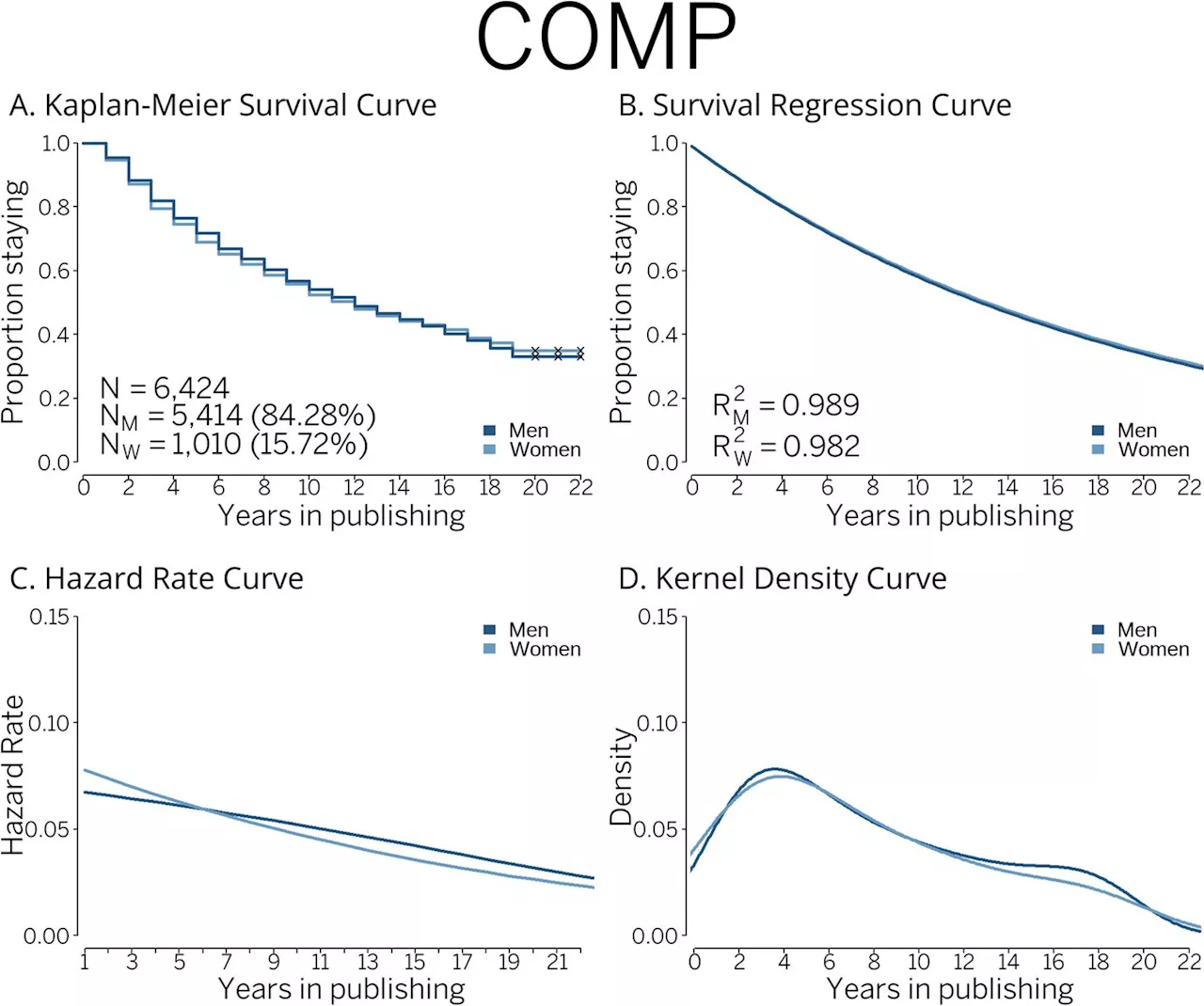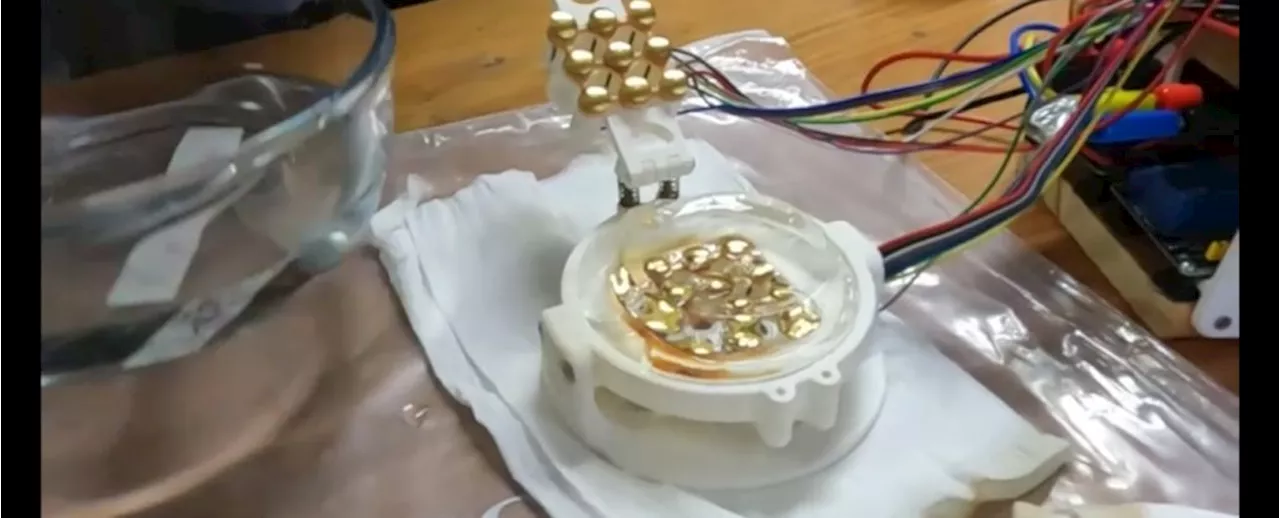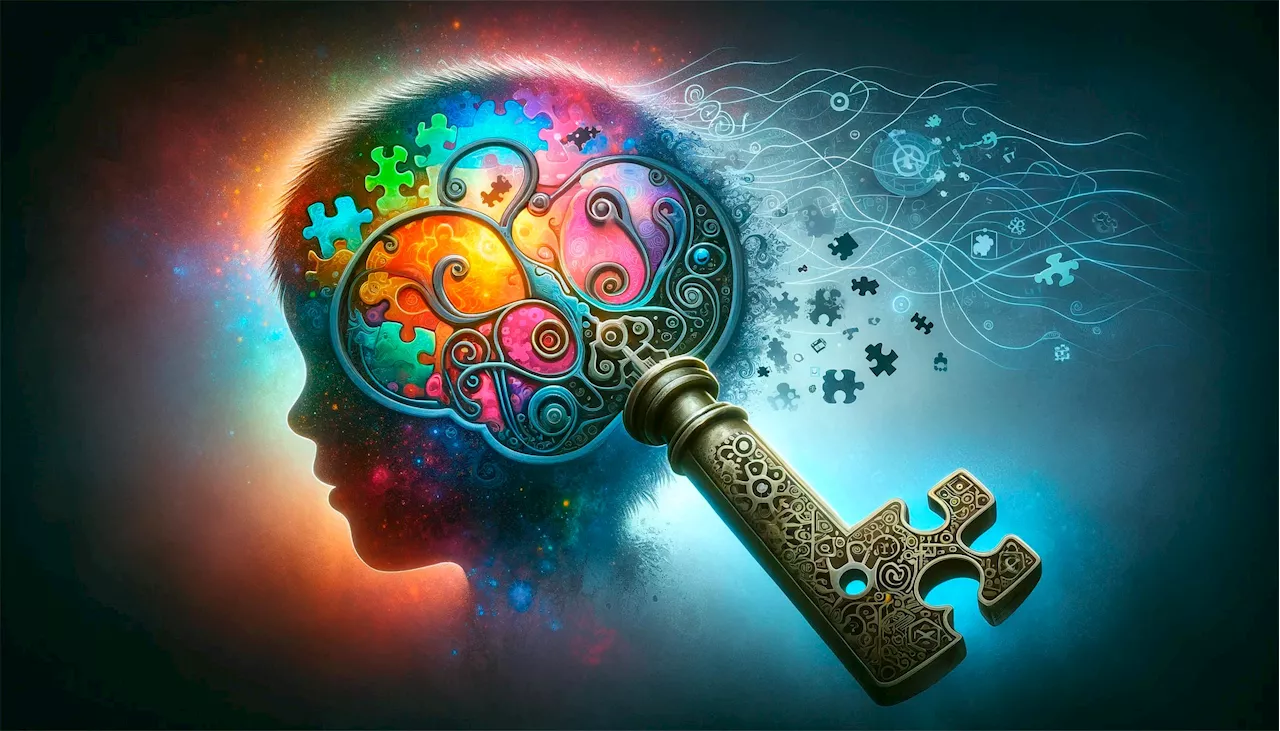Scientists have taken the most detailed picture yet of the dynamic brain changes that unfold during a pregnancy and early infancy.
Neuroscientists at the University of California at Santa Barbara captured MRI scans of a pregnant woman before, during and after her pregnancy. MUST CREDIT: Jeff Liang for The Washington Post
When neuroscientist Liz Chrastil and her husband were ready to start her family, she couldn’t pass up the opportunity to study herself. With a team of collaborators who have also studied the brain during menopause and the menstrual cycle, she slid into the scanner 26 times - before, during and after her pregnancy - providing an unprecedented view of a transformative event in human biology that has long been overlooked by science.
The experience of becoming a mother affects a person’s “biology, cognition, her sense of self and place in society - and even her risk of brain decline in late life,” Sharna Jamadar, a neuroscientist at Monash University in Australia who was not involved in the study, said in an email. “Despite these massive changes that occur during pregnancy, we have a largely poor understanding of exactly what changes occur in the brain during this time.
A shrinking brain may sound like it can’t possibly be a good thing, but Susana Carmona, a neuroscientist at Gregorio Marañón General University Hospital in Madrid who was not involved in the study, has found that the decrease in gray matter volume over pregnancy may be linked to increased levels of maternal attachment, suggesting that the brain is adapting for the challenge ahead.
Chrastil said that she didn’t experience “mom brain,” even though she has the rare ability to quantify with precision exactly how much her gray matter shrank - about 4 percent. She pointed out that most new mothers are sleep deprived, which could play a role in how well people feel their brains are working.
It’s easy to conceptualize the brain as a static organ, but research has shown that its ability to change and adapt is key to its function. During adolescence, brain cells are pruned in a process that improves its efficiency. But even in adulthood, and even on short time scales, the brain changes.
United States Latest News, United States Headlines
Similar News:You can also read news stories similar to this one that we have collected from other news sources.
 Disappearing scientists: Attrition and retention patterns of 2.1 million scientists in 38 OECD countriesResearch has been showing that women scientists continue to disappear from science at a significantly higher rate and in higher percentages than men. This is what social scientists have thought for decades—but this is no longer the case today, according to a study published in Higher Education.
Disappearing scientists: Attrition and retention patterns of 2.1 million scientists in 38 OECD countriesResearch has been showing that women scientists continue to disappear from science at a significantly higher rate and in higher percentages than men. This is what social scientists have thought for decades—but this is no longer the case today, according to a study published in Higher Education.
Read more »
 Chinese scientists develop brain-inspired AI model to cut energy useThe tests carried out by the research team proved the effectiveness of the internal complexity model in carrying out numerous tasks.
Chinese scientists develop brain-inspired AI model to cut energy useThe tests carried out by the research team proved the effectiveness of the internal complexity model in carrying out numerous tasks.
Read more »
 Scientists invented a brain-computer-interface that translates thoughts to speechNew brain-to-speech tech can accurately read your thoughts and turn them into speech to help people with disabilities like ALS speak again.
Scientists invented a brain-computer-interface that translates thoughts to speechNew brain-to-speech tech can accurately read your thoughts and turn them into speech to help people with disabilities like ALS speak again.
Read more »
 Brain Mechanism That Regulates Fear Discovered in Mice, Scientists SayThe Best in Science News and Amazing Breakthroughs
Brain Mechanism That Regulates Fear Discovered in Mice, Scientists SayThe Best in Science News and Amazing Breakthroughs
Read more »
 Scientists Build a Simple Gel 'Brain' That Learns How to Play Pong BetterThe Best in Science News and Amazing Breakthroughs
Scientists Build a Simple Gel 'Brain' That Learns How to Play Pong BetterThe Best in Science News and Amazing Breakthroughs
Read more »
 Autism and Brain Growth Patterns Unraveled by Yale ScientistsScience, Space and Technology News 2024
Autism and Brain Growth Patterns Unraveled by Yale ScientistsScience, Space and Technology News 2024
Read more »
